
It’s no secret that tales about vampires never lose their appeal, especially on television where they continue to thrive and innovate. Whether you were drawn into the world of vampires through Buffy, the Salvatore brothers, or the one with a French accent who talks about love and chaos, we can all admit to being captivated by these stories at some point – it’s no coincidence. Vampires are versatile characters that can play the role of monsters, antiheroes, full-blown villains, or simply struggling individuals trying to make ends meet in the modern era. This adaptability is what keeps these shows relevant and successful, even when it seems like the genre has been exhausted.
Instead of focusing on popularity, let me share with you the top 10 vampire TV series that have left a lasting impact in the genre. How effectively do they embody the essence of the vampire world? These shows might not be the most viewed, but they certainly made a significant contribution.
1) Buffy the Vampire Slayer
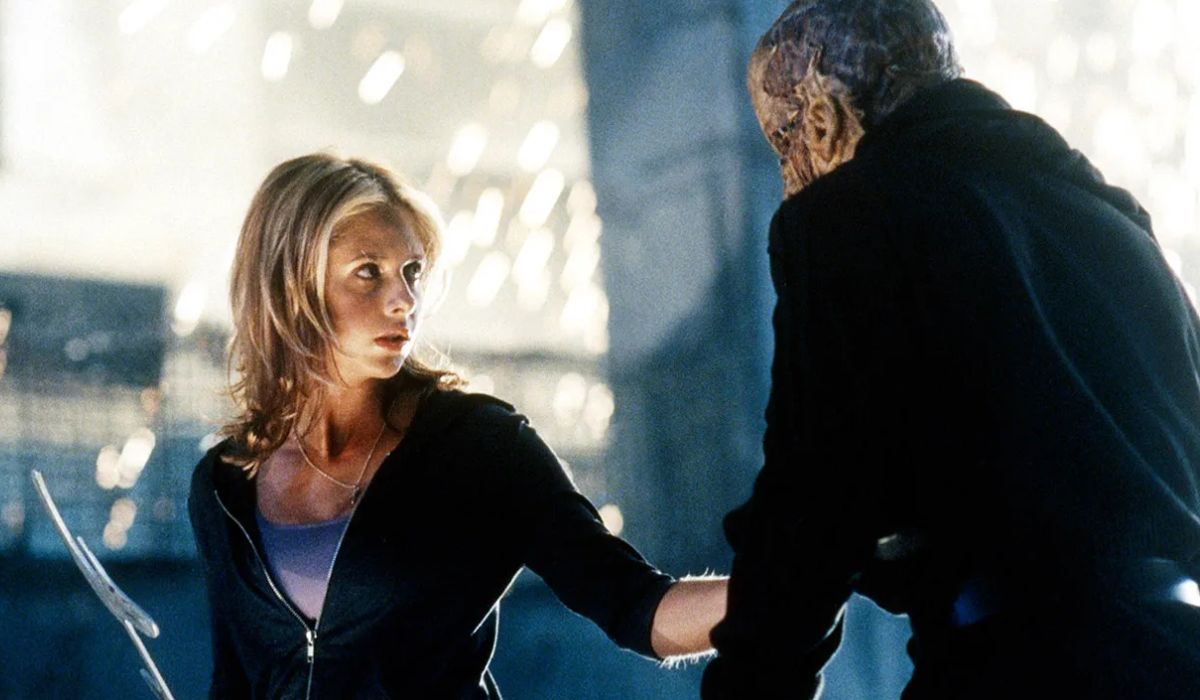
Discussing vampire television series inevitably involves mentioning “Buffy the Vampire Slayer,” as it significantly influenced the portrayal of the genre on screen and set new standards for character development in supernatural narratives. The story revolves around Buffy (played by Sarah Michelle Gellar), a teenager who discovers she’s destined to battle vampires and demons, while dealing with her complex personal issues. On the surface, it might seem like a typical setup; however, the true power of the series lies in its ability to blend the supernatural and the ordinary in a realistic and mature manner.
The topic at hand centers around the enduring cultural influence of “Buffy the Vampire Slayer.” Remarkably, it’s managed to remain relevant for decades, even with a reboot in development. Its unique language, coupled with an intensely devoted fanbase, has left an indelible mark on popular culture. It essentially paved the way for every subsequent teen supernatural show that followed. Although some episodes may seem outdated now, the character progressions remain compelling if you revisit the series today. Unlike any other series, “Buffy” masterfully combined horror, humor, romance, and deep thematic storytelling in a remarkable way.
2) Interview with the Vampire
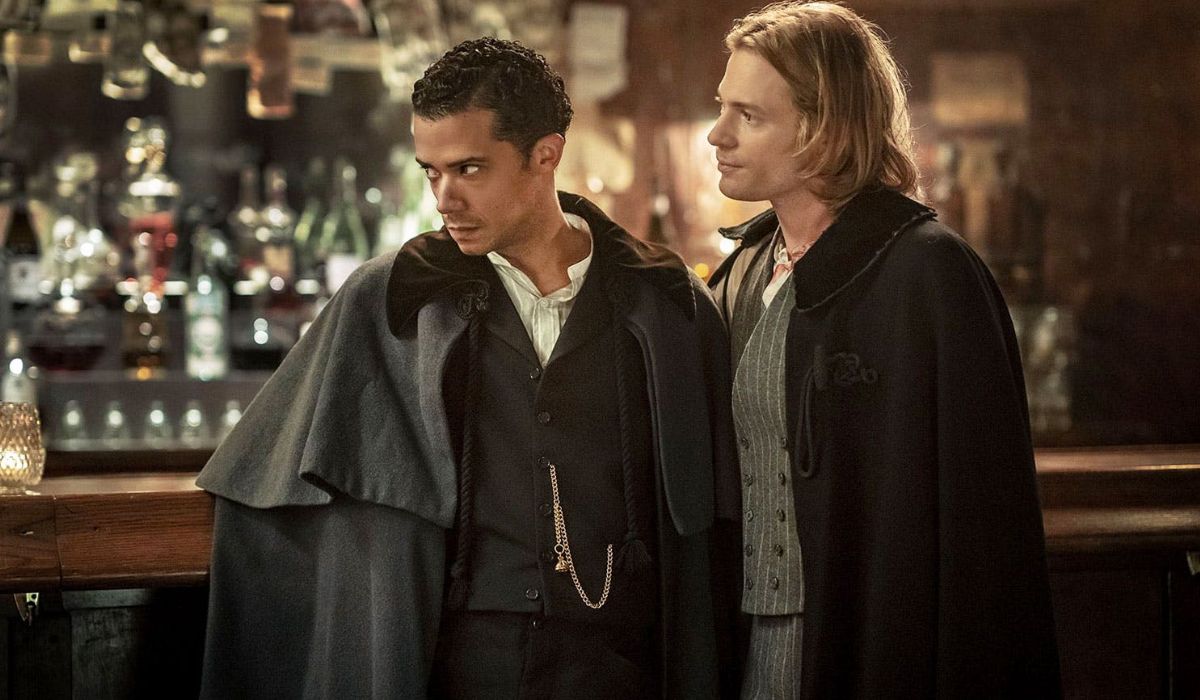
The AMC’s interpretation of “Interview with the Vampire” offers an unexpected twist for those familiar with the tale or its film counterpart. The show modernizes the narrative to the 20th century, featuring Louis (Jacob Anderson) as a black, LGBTQ+ vampire who shares his tale with journalist Daniel Molloy (Eric Bogosian). His complex, tumultuous relationship with Lestat (Sam Reid) is revisited, adding a fresh perspective to the story. The series isn’t merely an adaptation of Anne Rice’s work; it enhances it, providing depth and complexity rarely seen in supernatural characters. Furthermore, the visuals are captivating, and the performances are exceptional.
This production transcends mere adaptation; it’s a raw psychological drama brimming with emotional turmoil and profound queer undertones. Unlike other shows within the genre, the pace is deliberately slow, providing ample room to explore characters deeply and the consequences of their decisions. Instead of focusing solely on blood and immortality, Interview with the Vampire delves into themes such as trauma, regret, and power, offering a level of maturity in vampire television that is seldom seen.
3) The Vampire Diaries
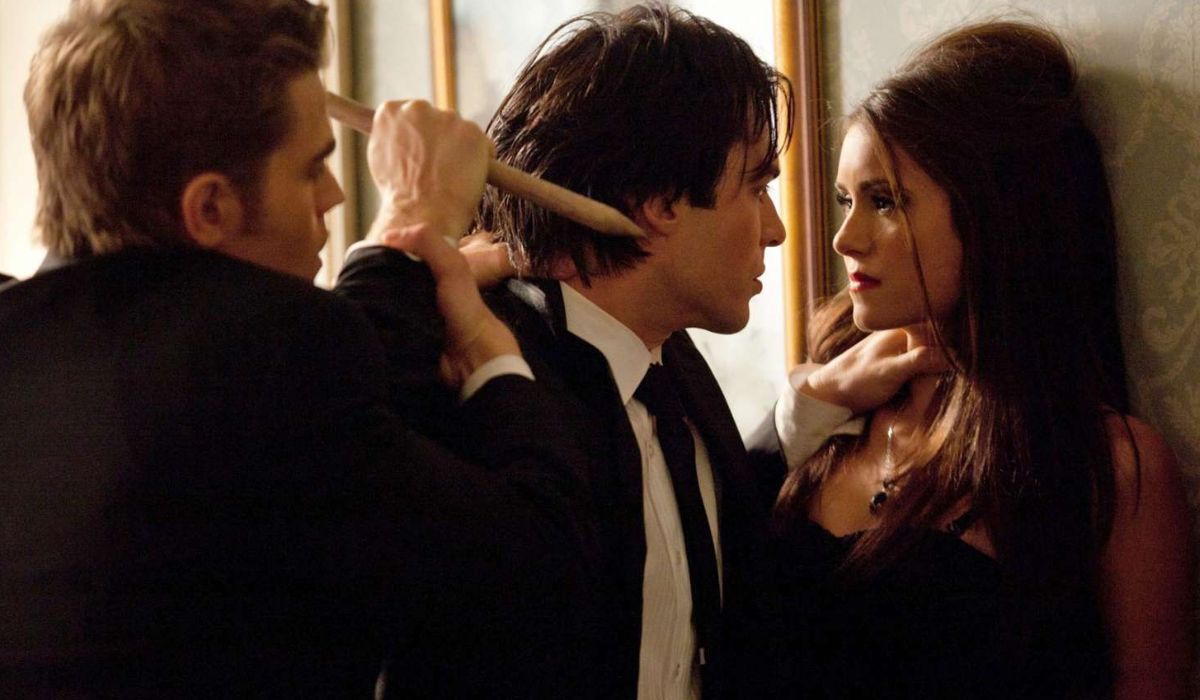
The Vampire Diaries” didn’t aim to revolutionize the vampire genre, but instead, it catered precisely to its audience: teenagers yearning for romance, intricate mythology, and endless plot surprises. The story begins when Elena Gilbert (Nina Dobrev) becomes smitten with Stefan Salvatore (Paul Wesley), unaware that he and his brother Damon (Ian Somerhalder) are ancient vampires whose turbulent past is deeply intertwined with the town’s history. As events unfold at a rapid pace, werewolves, witches, and doppelgangers make their appearance as if it was routine – a style that the show handles effectively, thriving on the ensuing chaos.
Absolutely, there’s no denying that some tropes were present, but “The Vampire Diaries” truly excelled in crafting captivating characters and delivering powerful emotional moments. My personal favorite has to be Damon’s transformation, a journey that started with a ruthless antagonist and culminated into an extraordinarily engaging character. The dialogue may not have always been flawless, but the dynamic energy, swift narrative pace, and outstanding chemistry among the cast kept viewers hooked. To put it simply, “The Vampire Diaries” was nothing short of a compelling, unabashed supernatural drama that knew its identity and delivered just that – an addictive experience.
4) The Originals

It’s interesting how sometimes a spin-off turns out to be superior to the original series. This is exactly what happened with “The Originals”, which surpassed “The Vampire Diaries” for many fans in various aspects. The show focuses on the original vampires, particularly Klaus Mikaelson (played by Joseph Morgan) and his family, who are grappling with mature themes such as fatherhood, legacy, and the complexities of power. The story unfolds in New Orleans, where Klaus is attempting to regain control of the city while navigating supernatural challenges like witches, werewolves, and internal conflicts. In contrast to its predecessor’s teen atmosphere, “The Originals” has a gothic ambiance and darker tone that resonates more with viewers.
What truly sets this apart is the depth of its character development. Klaus isn’t your typical reckless anti-hero; instead, he’s a troubled man striving for improvement, primarily for his daughter’s sake. Unlike in some shows, like TVD, it steers clear of excessive plot twists, focusing on well-structured story arcs and conflicts that receive the attention they warrant. While there’s still a touch of melodrama (it being a vampire show), the emotional impact is stronger and more realistic. The Originals demonstrated the maturity potential in the TVD universe.
5) True Blood

True Blood, despite its fluctuations, managed to achieve cult classic status in the end. The show began with a daring premise: merging vampires with complex social themes set in a small Southern town rife with prejudice and deep-rooted religious beliefs. In this universe, vampires coexist peacefully with humans thanks to a synthetic blood called “Tru Blood,” and we follow the story of Sookie Stackhouse (Anna Paquin), a waitress with telepathic abilities who becomes entangled with the vampire Bill (Stephen Moyer). This innovative concept was brimming with possibilities, and at that time, it provided an outlet for adult viewers seeking something more mature, sensual, and politically charged in their vampire narratives.
The show “True Blood” struggled to maintain its storyline as it became increasingly chaotic. It relied too heavily on the bizarre, piling up excessive plotlines and an overabundance of side characters, leading to a narrative that ultimately fell apart. Yet, despite this, it managed to keep a dedicated audience due to its impressive early seasons and compelling characters such as Eric (Alexander Skarsgård), who proved to be enduring. Regardless of whether you adored it or grew weary of the chaos, “True Blood” warrants recognition for its audacity and the impact it made on the genre when it first appeared.
6) What We Do in the Shadows

As a dedicated movie enthusiast, I’ve got to say that not many shows can pull off the clever satire of vampires quite like “What We Do in the Shadows”. This show is an outrageous comedy, following the lives of four bloodsuckers sharing a home on Staten Island. They’re juggling mundane tasks such as paying bills, navigating awkward encounters with humans, and constantly trying to outdo each other. The plot may seem preposterous, but that’s what makes it so entertaining. The mockumentary style adds a touch of realism, while the impeccable comedic delivery from actors like Matt Berry and Kayvan Novak takes things to a whole new level of hilarity.
In essence, this series subverts traditional vampire tropes while maintaining a deep respect for the genre. The show, similar to the movie from which it originates, constructs a whimsical, unique world that shines with a genuine affection for its source material. Despite the exaggerated humor, there’s a remarkable coherence in character development and universe mechanics. _What We Do in the Shadows_ demonstrates that there’s still ample space for innovation in vampire narratives, as humor can be just as impactful as fear.
7) Castlevania
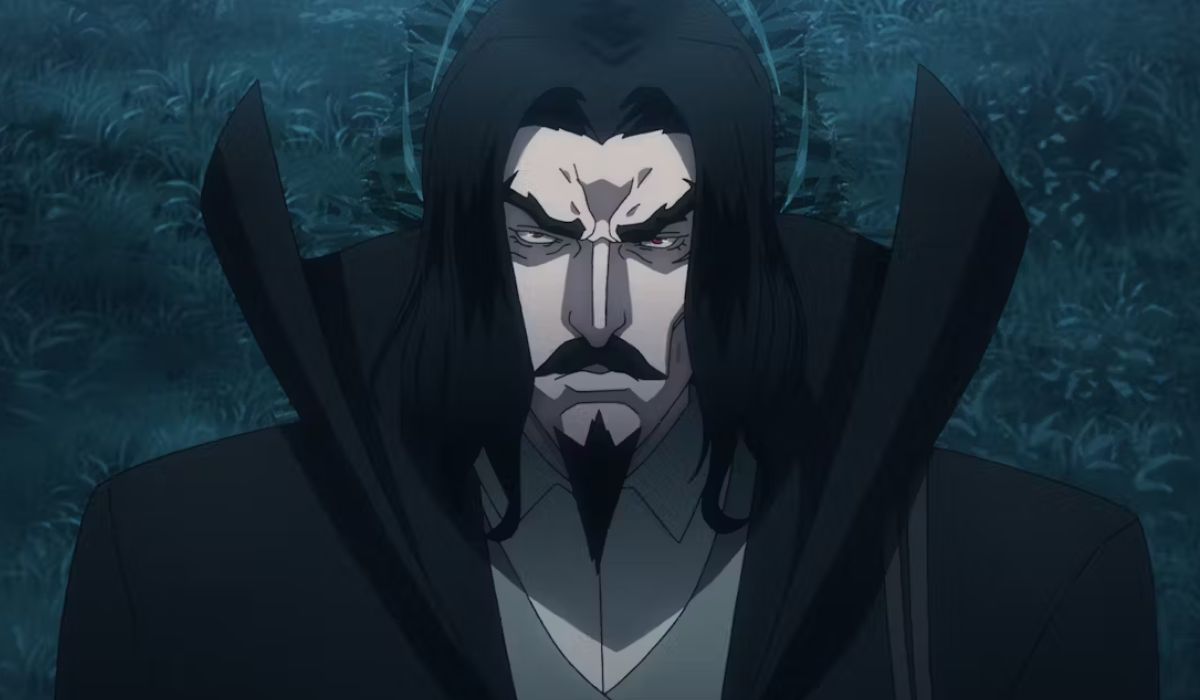
In comparison to other animated shows featuring vampires, none seem to pack quite the punch like “Castlevania”. It’s an exceptional instance where vampirism is not just a trope but carries significant weight, portrayed in a darkly serious and emotionally resonant manner. The story is based on the Konami video games, focusing on characters Trevor Belmont, Sypha Belnades, and Alucard as they strive to halt Dracula’s war against humanity, driven by sorrow. What makes this series stand out from the beginning is its seamless combination of intense action with insightful dialogue, both set within a mythological universe that feels authentic and deserved – something many vampire shows struggle to achieve.
In essence, what sets “Castlevania” apart is the rich character development of its villains, particularly Dracula. He’s not portrayed as purely evil, but rather a character shattered by loss and fury, which lends depth and complexity to the narrative. The series doesn’t shy away from dark themes such as violence, trauma, and difficult decisions, yet it manages to avoid coming across as moralistic or overly graphic. In many ways, “Castlevania” showcases that animation intended for adults can deliver vampire stories that are equally sophisticated, if not more so, than their live-action counterparts.
8) Midnight Mass
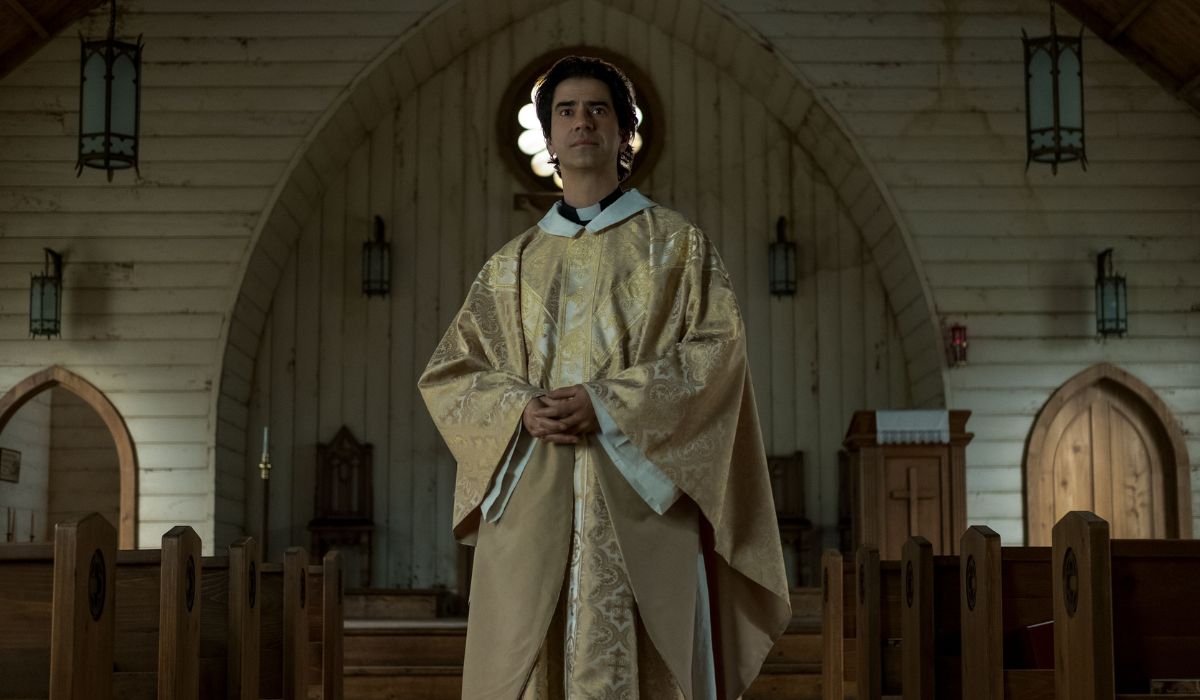
It might be a surprise, but ‘Midnight Mass’, a series by Mike Flanagan, revolves around themes of vampires. This show, which stands out for its intellectual depth among the other entries, tells a story about a remote community experiencing strange occurrences following the arrival of a new priest. However, the narrative is less about traditional vampire lore and more about exploring how beliefs, guilt, and isolation impact individuals. Though the creature may not be the main focus, it serves as a subtly powerful force guiding events astray.
A nighttime service titled “Midnight Mass” might not appeal to everyone due to its deliberate pace and extensive monologues. However, if you’re open to immersing yourself in it, you’ll discover a profound, thought-provoking, and emotionally charged narrative. It explores themes of death, redemption, and faith in a manner seldom seen in genre series. The minimalistic approach only intensifies the heavy atmosphere. Unlike typical vampire tales, this production offers an incredibly intense and strikingly human interpretation of the mythology.
9) The Strain
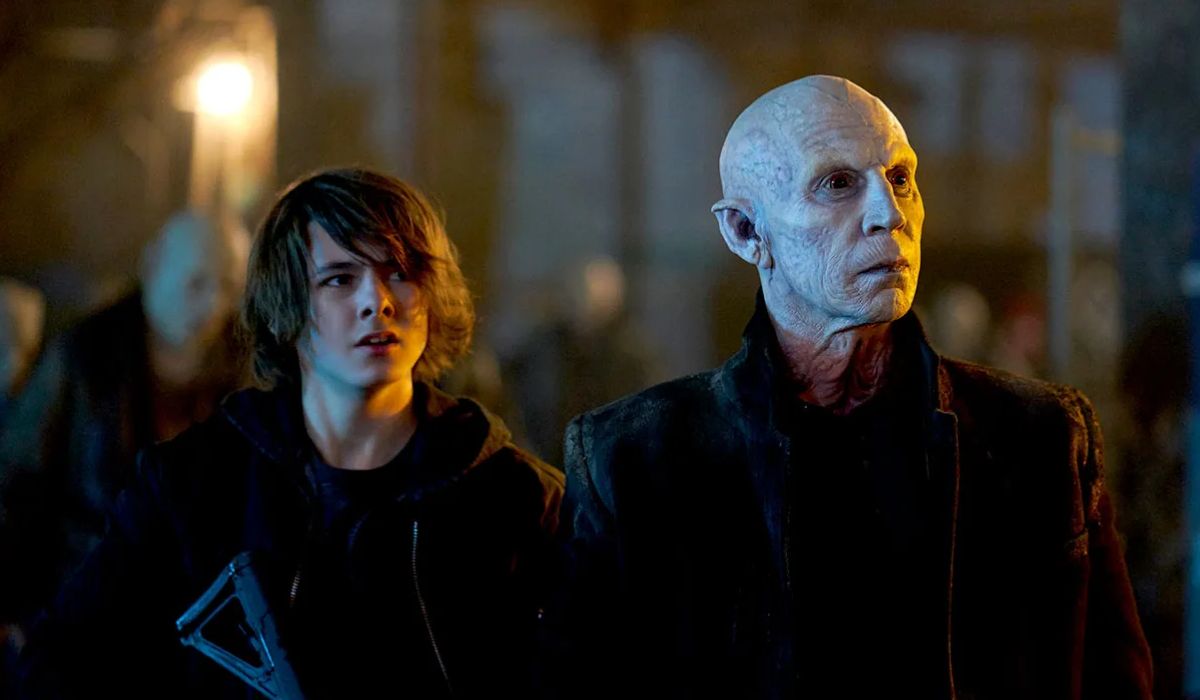
In an effort to approach the vampire theme from a grittier perspective, The Strain opts for a biological and apocalyptic take, viewing vampirism as a city-wide viral epidemic unfolding in New York. Conceived by Guillermo del Toro, this series combines elements of body horror, medical suspense, and supernatural intrigue, offering a unique amalgamation that sets it apart. Here, the vampires are parasitic and horrifying, resembling zombies rather than alluring immortals, providing the show with a distinct, innovative touch.
As a fan of chilling horror series, I find “The Strain” to be an intriguing blend, albeit with occasional uneven moments when it comes to pacing. Yet, despite these fluctuations, the show stands out with its dense mythology and grotesque imagery that truly satisfies those who appreciate graphic horror. The character development is decent, but what really draws me in is the oppressive atmosphere and the persistent feeling of impending doom. It may not have the mainstream appeal or iconic status of some other series on this list, but it more than earns its place by boldly reimagining the vampire genre in a darker, more visceral, and surprisingly relevant way.
10) Dark Shadows
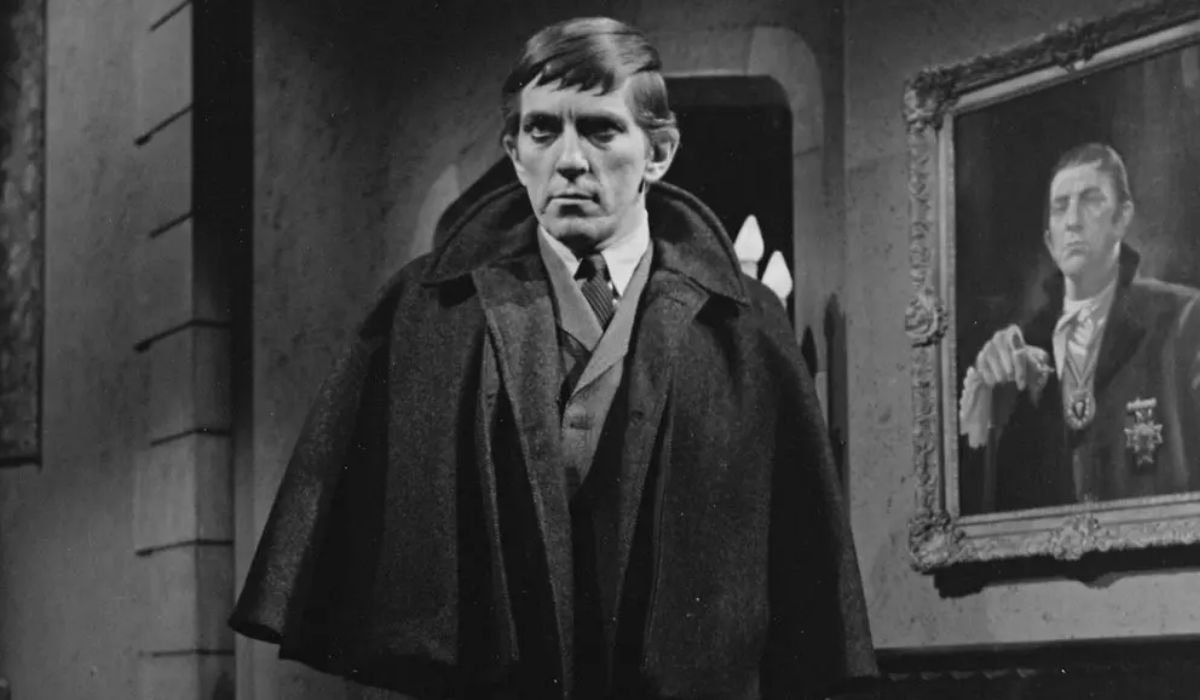
One timeless example, “Dark Shadows” demonstrates that even a show with limited resources can have a significant impact. Originating in the 1960s and 1970s, this gothic daytime drama was pioneering in blending supernatural romance, time travel, and horror elements. The narrative centers around the Collins family and their mysterious past hidden within a spooky mansion, introducing Barnabas Collins, a character later made famous by Tim Burton as a vampire.
Revisiting it today, it’s clear that the series seems quite outdated: the pace is slow, the special effects are cheesy, and the acting is exaggerated. However, its historical impact cannot be understated. Dark Shadows paved the way for vampire narratives to break into mainstream television through serialized storytelling and a dedicated fan base. Despite its eccentricities, its impact on the genre is immense, making it undeniably one of the most significant vampire shows in history. Absolutely.
https://comicbook.com/horror/news/how-the-original-nosferatu-changed-vampire-horror-forever/embed/#
Read More
- Survivor’s Colby Donaldson Admits He Almost Backed Out of Season 50
- Gold Rate Forecast
- Best Controller Settings for ARC Raiders
- Where Winds Meet: How To Defeat Shadow Puppeteer (Boss Guide)
- How to Build a Waterfall in Enshrouded
- Goat 2 Release Date Estimate, News & Updates
- Death Stranding 2: Best Enhancements to Unlock First | APAS Guide
- 10 Best Character Duos in Stranger Things, Ranked
- EA Sports FC 25: Best Players for Aim Assist Evolution
- The Best Sports Movie Franchise Is Finally Complete on a Single Streaming Service
2025-08-06 04:13